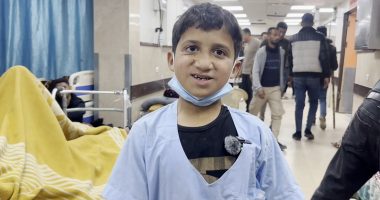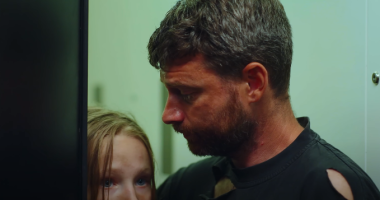
At Renk in South Sudan, 40km (25 miles) south of the border with Sudan, I met a young boy – Miyok, orphaned by the brutality of the Sudan conflict. Miyok is one of at least 600,000 refugees who have fled to South Sudan since the start of the conflict a year ago. He now lives with his aunt in one of the two transit centres.
Despite facing myriad challenges, Miyok’s wish is simple yet profound – to be educated and have the opportunity to fulfil his dream of becoming a doctor.
As international donors met earlier this week in Paris, Miyok’s story resonated deeply. His dream represents not only his personal aspirations but also embodies the collective hope of a nation striving for a better future.
A future that continues to remain uncertain, however. In Paris, donors pledged $2bn to support millions of people in Sudan and in host countries. Although this is most welcome, it is only half of the $4.1bn needed to give people their next meal and what they need to survive and rebuild their lives.
To date, the conflict in Sudan has displaced at least two million people, triggering one of the world’s largest humanitarian crises. Neighbouring countries – South Sudan, Chad, Central African Republic, Ethiopia, Egypt, and Libya – are feeling the impact whether through strained resources, economic disruptions or risk of the conflict spilling over.
We have seen up to 1,500 people arriving every day in Renk, some on donkey carts, others crammed into overcrowded minivans, and those who can’t afford transport walk for miles under the scorching sun to reach the border.
Many of those who have fled are women carrying nothing but a small bundle of clothes on their backs and their children. Their eyes are filled with exhaustion, fear, and uncertainty about what the future holds.
Time and time again, when I met with officials and Oxfam’s partners in South Sudan, the phrase “perfect storm” was mentioned, summarising the prevailing challenges which have plunged the nation further into destitution.
Even before the war in Sudan erupted, South Sudan was already suffering from intercommunal conflict over resources and a climate crisis, which have created a dire humanitarian crisis. Two-thirds of the population urgently needs food, including 35,000 people facing starvation. Nearly nine million people currently depend on aid for survival.
Despite contributing little to global carbon emissions, South Sudan has been hit hard in recent years by climate change-induced erratic weather patterns – harsh droughts and boiling temperatures followed by heavy rains leading to severe flooding which have continued to wreck property, infrastructure and crops. This situation, compounded by an economic crisis, has had devastating effects on an already vulnerable population.
To make matters worse, the country’s key oil pipeline, which passes through neighbouring Sudan, was damaged in February. With oil responsible for 90 percent of South Sudan’s revenue and the pipeline accounting for two-thirds of oil revenues, the loss of the pipeline puts the already fragile economy on the brink.
Despite South Sudan’s humanitarian and economic crisis, and the increasing influx of refugees from neighbouring Sudan, aid has dwindled to an extreme low. In 2023, the United Nations appeal for South Sudan was slashed by half to $1.79bn, but less than four percent of the target was met.
The resilience of the South Sudanese people has been repeatedly tested, yet the difficulty in fully implementing the 2020 peace agreement risks jeopardising the legitimacy of the government. This situation, coupled with an economic crisis, could intensify further the ongoing violence.
To overcome this deep crisis, South Sudan needs three key things. First, an immediate injection of aid funding that not only focuses on short-term emergency support but also prioritises development that empowers South Sudanese people to break free from the vicious cycle of shocks and be able to rebuild their lives.
Second, while external support is crucial, the South Sudan government should intensify efforts to lead, build basic infrastructure and provide essential public services so the economy works for the South Sudanese people.
Third, and most importantly, as the country heads towards elections later this year, many in South Sudan see this as a crucial step in addressing the governance, economic and humanitarian challenges. A lasting peace will help avert the perfect storm and ensure a stronger South Sudan.
Amid the chaos, those who love this country, from government officials to grassroots activists and partners, share a determination to rebuild a nation torn apart by conflict and climatic shocks.
Despite the numerous crises the world is currently experiencing, we should not turn our backs on the South Sudanese people and the refugees fleeing the conflict in Sudan. We urge donors who met in Paris this week to keep the momentum and immediately scale up the humanitarian response and renew their call for an immediate ceasefire and an inclusive peace process.
I left South Sudan with my heart aching for Miyok and countless others, whose futures hang in the balance. But I refuse to lose hope. We should all rally together as partners in progress, empowering South Sudanese communities to chart their path towards a brighter future.
The views expressed in this article are the author’s own and do not necessarily reflect Al Jazeera’s editorial stance.
Read More: World News | Entertainment News | Celeb News
Aljazera









